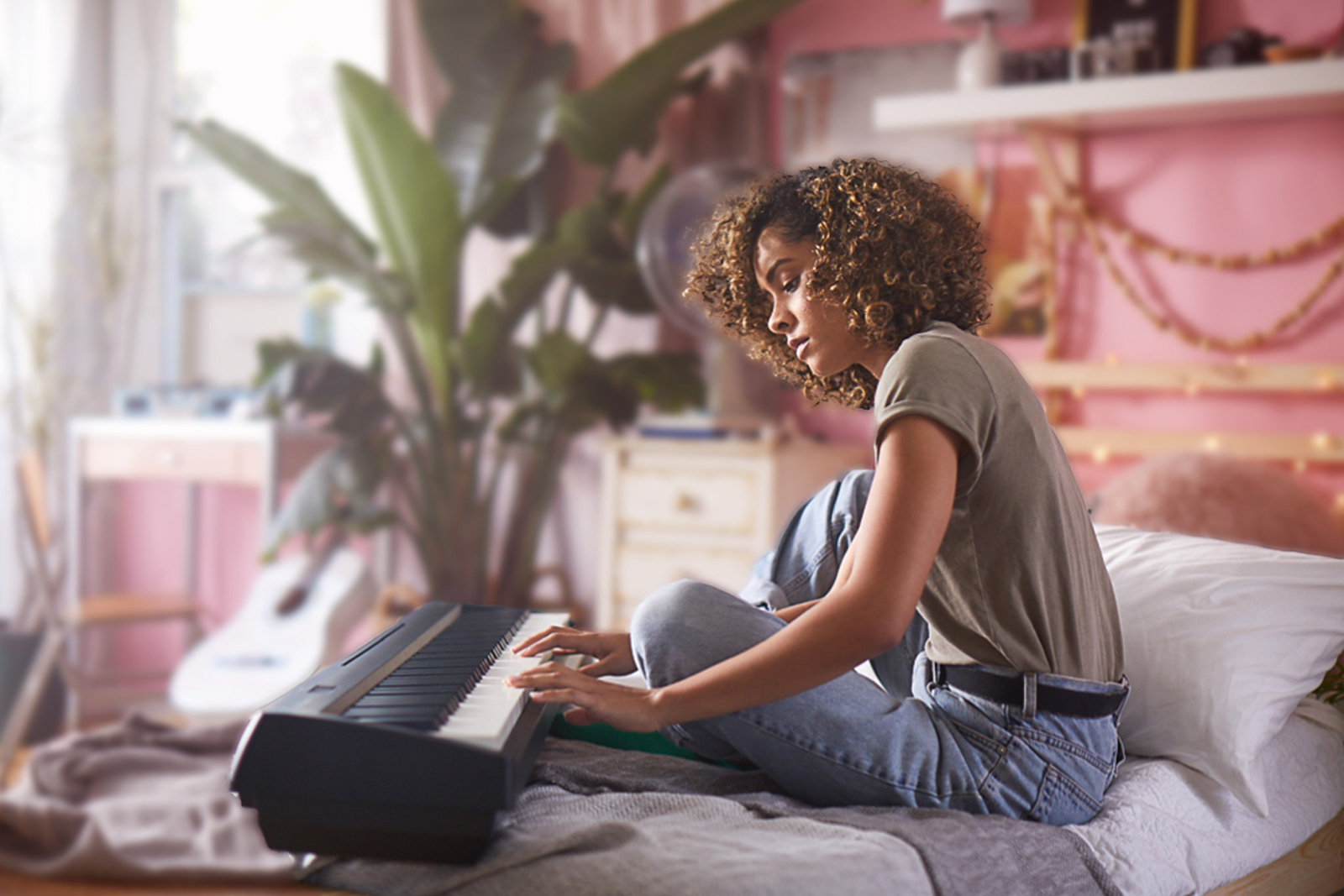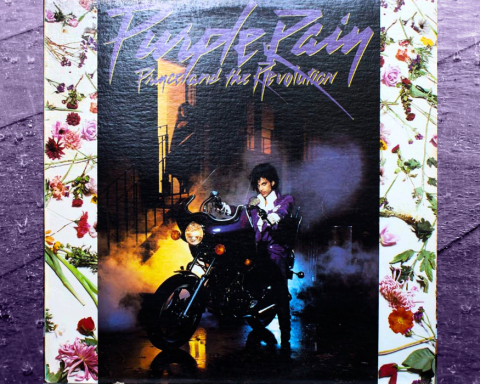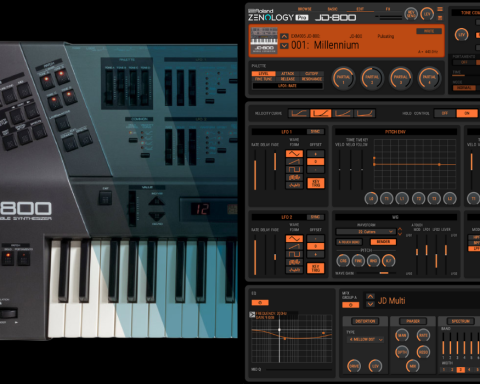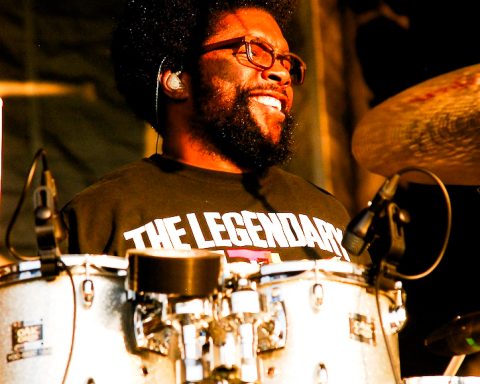Learning piano as an adult should be fun and can be challenging. Additionally, if you don’t enjoy yourself, the chances of you sticking with it are pretty slim. I played piano for about a year when I was seven and remember thinking of it as a chore. The songs I was learning didn’t excite me, and my teacher was terrifying.
Making the Choice
I have always loved music. Throughout my teenage years and early adulthood, wished I had stuck with the piano. Like most people, life had different plans. As time passed, my life settled. I had time to reflect on what life could have been and even what life could be.
Learning piano as an adult seemed like a better idea than speeding off into the sunset in a red sports car. In fact, it was one of the best decisions I have ever made.
When I was 47 years old, I went online and started to research the best ways to learn the piano. Most of the information I found was for kids. After a bit of digging, I came upon some great advice. As it turns out, learning to play the piano when you are an adult is a topic of interest for many people.
“For older students, enthusiasm is more important than talent and enjoyment is more important
than discipline."
My new piano teacher told me, “For older students, enthusiasm is more important than talent and enjoyment is more important than discipline.”
After playing for several years, I understand what she was saying. There are some clear advantages in learning to play the piano when you are older.
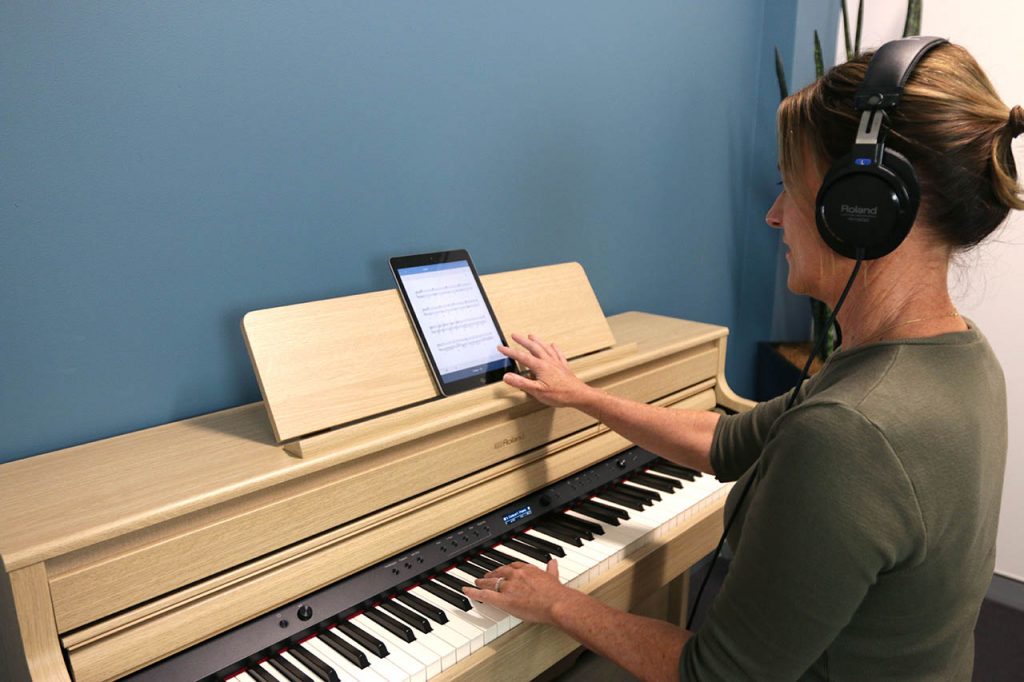
Advantages to Learning Piano as an Adult
You want to play the piano. This goes back to enthusiasm. I can remember having to learn the piano as a kid and it wasn’t much fun. To this day, when I hear “The Itsy-Bitsy Spider” and “Mary Had a Little Lamb,” I get a sense of impending doom. When I started playing again, I went straight to learning my favorite songs.
As an adult, you can choose how you learn: by ear, teacher, apps, by your mistakes, etc. There are lots of ways to learn the piano, especially with digital pianos, YouTube, and Bluetooth technology. Decide when you will learn including nighttime, weekends, and public holidays. Use headphones and a digital piano, and it can sound like you’re playing a Steinway in an auditorium without disturbing anyone.
"As an adult, you can choose how you learn: by ear, teacher, apps, by your mistakes, etc."
You know why you want to learn whether it’s for relaxation, enjoyment, or stardom. This was an easy one for me. I wanted to play and sing the songs that I love. You can learn at your own pace, whatever that is. If you are doing the things above —enjoyment, playing what you want to play—then you might surprise yourself with how quickly you learn to play.
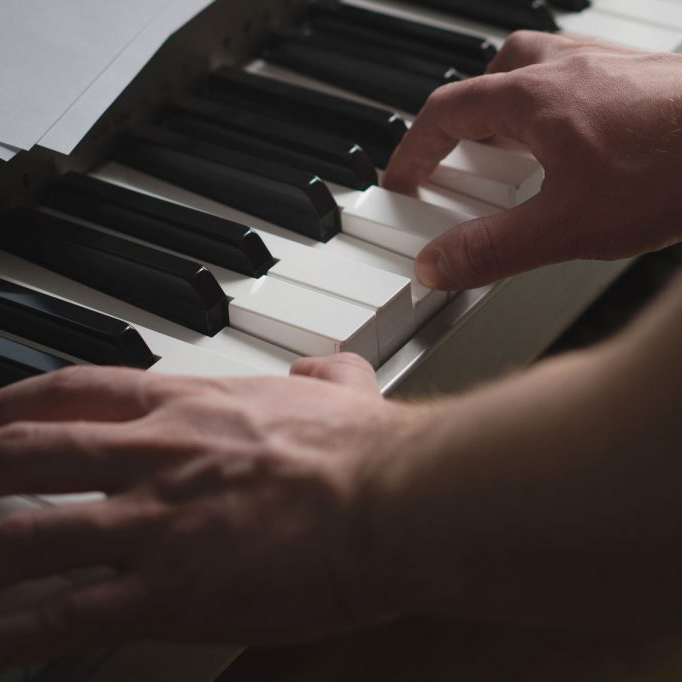
Getting Started
Before we rush in, let’s take a breath.
Adults tend to achieve the best results with project-based learning. This begins with understanding what the final goal is and working to achieve it. How does this relate to learning to play the piano as an adult? I am glad you asked.
Prior to starting to learn a song, I already know how it should sound. Then I go through the process of putting the chords and melodies together. This is classic project-based learning.
This is different from starting by learning to read notation, studying theory, and practicing scales. However, now that I have scratched the itch of being able to play a few of my favorite songs, I am learning to sight-read.
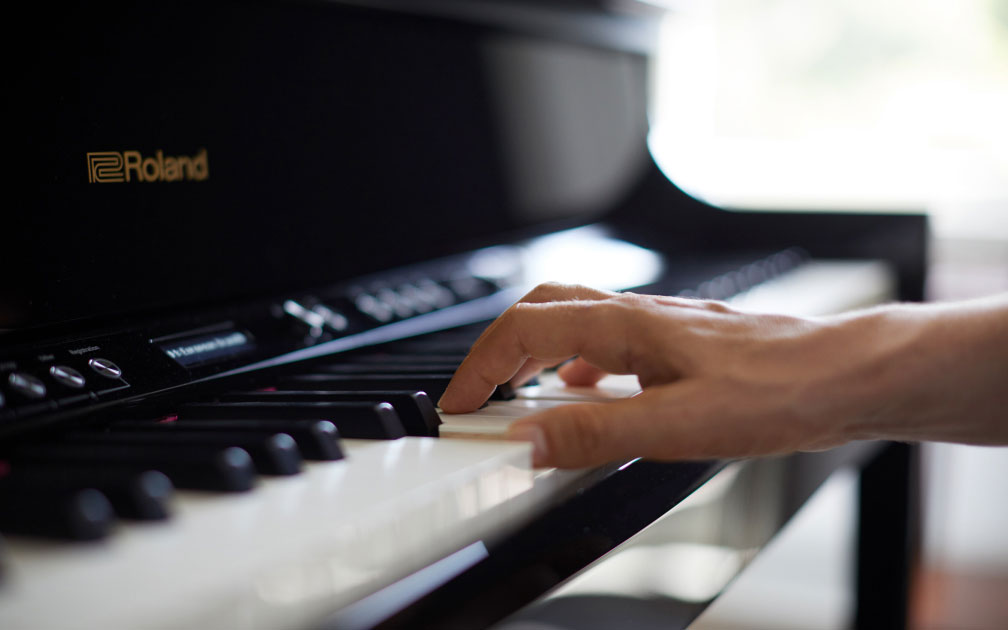
Five Simple Suggestions Before Learning Piano
- Get a piano in your home to practice and play
- Clarify what you want to achieve and set reasonable expectations
- Choose a suitable learning method: online, teacher, or apps
- Pick an easy song you love to get started learning
- Create a regular practice schedule and begin
Many Ways to Learn to Play
There is no right or wrong way to start learning to play piano as an adult. Every student is different. Still, there are some great learning choices available. Keep things interesting and try a few of them.
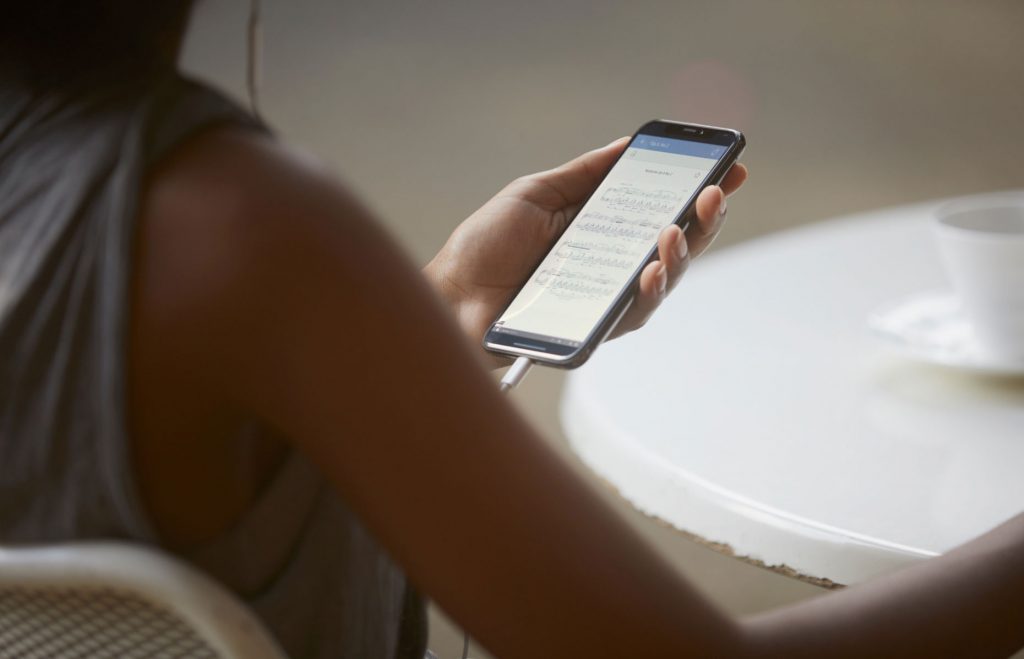
Applications
One of the advantages of learning on a digital piano is the availability of technologies to help you. There are hundreds of apps out there plus online learning sites. These will provide everything you need to get started and to grow as a player.
One of the best things about apps is that they gamify learning to read music. What would be repetitious practice transforms into an epic human-versus-machine challenge. You may enjoy trying to beat your last score for speed and accuracy.
There are many options available, so it’s easy to find an online course for your level and learning style.
Piano Teachers
Not everyone wants to learn from a teacher. However, if you are willing, it can save you time and provide direction. A teacher can also be the perfect complement to other learning methods.
My teacher started by asking me what I wanted from learning to play the piano. I then played her the song I’d been working on. She got me to break the song down into small pieces and play one hand at a time, very slowly.
It seemed so simple. She was able to point out what I was doing wrong and shift me in the right direction. An important thing I learned from my teacher is to share music. When you play with someone or for someone it changes and becomes something new.
Learning from YouTube and Videos
There is an impressive amount of quality musical instruction available online. I use an iPad with my digital piano and it’s really easy to go through video tutorials at my own pace. It’s the easy access to resources like this that have made learning piano as an adult so enjoyable.
"When you play with someone or for someone it changes and becomes something new."
Learning by Ear and Rote
I found playing by ear a bit tricky when I first started. Usually, I could work out the melody, but I struggled with the left-hand chords. Nevertheless, I found that trying to figure out a song helped train my ear. Now that I have a better understanding of chords, I can work things out easily.
I resisted learning to read music so learning through repetition (Rote) suited me. The trick was to practice as often as possible, so I didn’t forget what I had learned. I also found that repeating the same section over and over helped my playing.
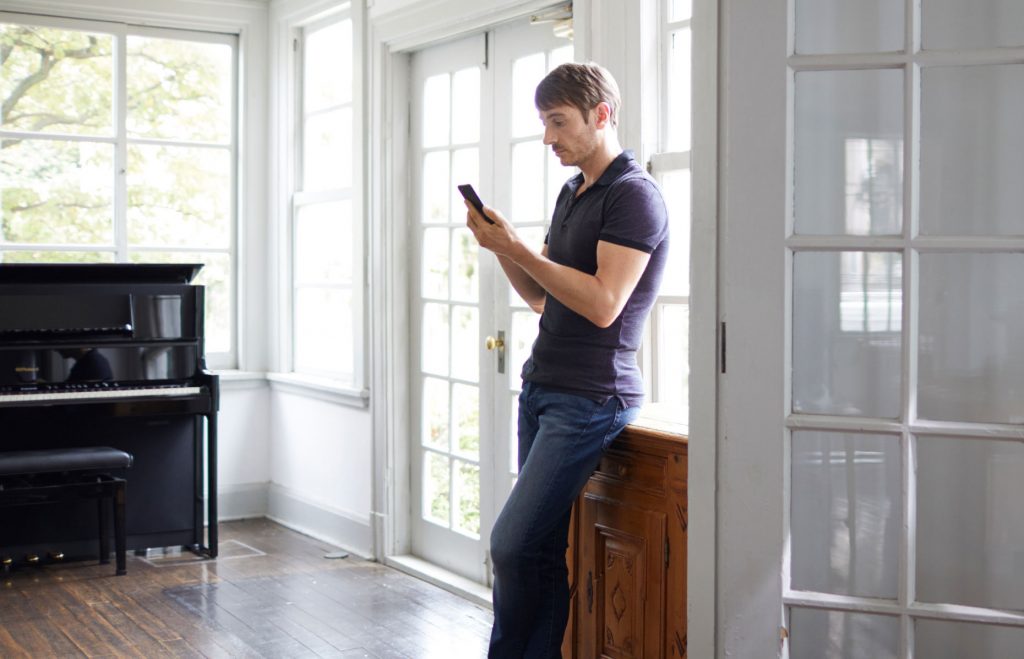
10 Tips to Becoming a Better Piano Player
- Start with simple pieces of music. Relax and take your time.
- Listen to the song you are trying to learn to get a feel for the dynamics and emotion used to tell the story.
- When you have a hard time playing a section of music, break it down into smaller pieces. Play one hand at a time and repeat the pattern until it becomes easy.
- Practice playing each part of the song. When the playing becomes second nature, it’s easier to perform the song with a natural feel.
- When you learn a complex section of music, go back and put it in context by playing the sections before and after it.
- Look for familiar patterns and harmonies in every song you learn. This will help your understanding of songwriting and your knowledge of the instrument.
- Record performances to hear areas that need improvement and get a sense of your progress.
- Find a great teacher who can help you with your technique and offer suggestions on ways to learn.
- Practice every day if possible and remember to have fun. Keep your learning interesting by trying new techniques.
- Play with other people to improve your timing and listening skills.
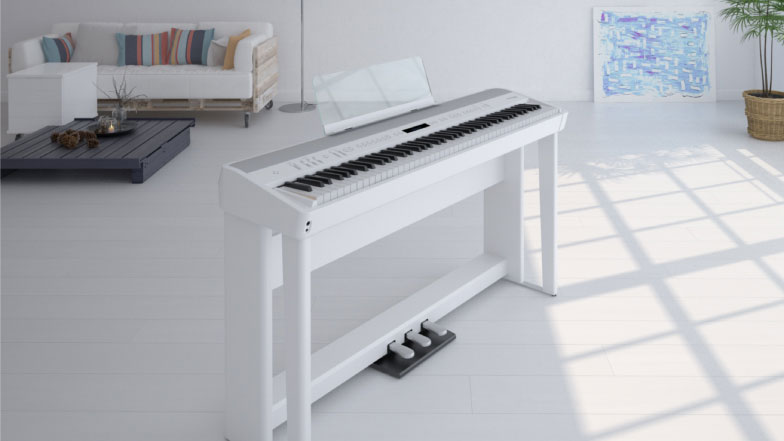
Choosing the Right Piano
There’s a great deal of information out there about choosing the right piano. The first decision to make is whether to buy an acoustic or digital piano. They are both great options, so this is a personal choice. I chose a digital piano for the following reasons:
Space
We live in an apartment and I needed a piano that was portable so I could move it around if required.
Sound
A great sound is important, even when you are learning an instrument. I did a lot of research and enjoyed how rich digital pianos sound. The fact that you can add a bit of reverb and choose between different models is a bonus.
Technology
I wanted to learn using apps so Bluetooth technology was a must. In addition, I liked the idea of having onboard metronomes and being able to record myself.
Noise
Being able to play with headphones and practice day or night has been a huge plus for me.
Performance and Feel
Early in my research, I decided to find a piano with a weighted keyboard and 88 keys to replicate an acoustic piano.
Price
As I don’t plan on becoming a professional musician, I didn’t want to pay a fortune. There were some great digital pianos in my price range.
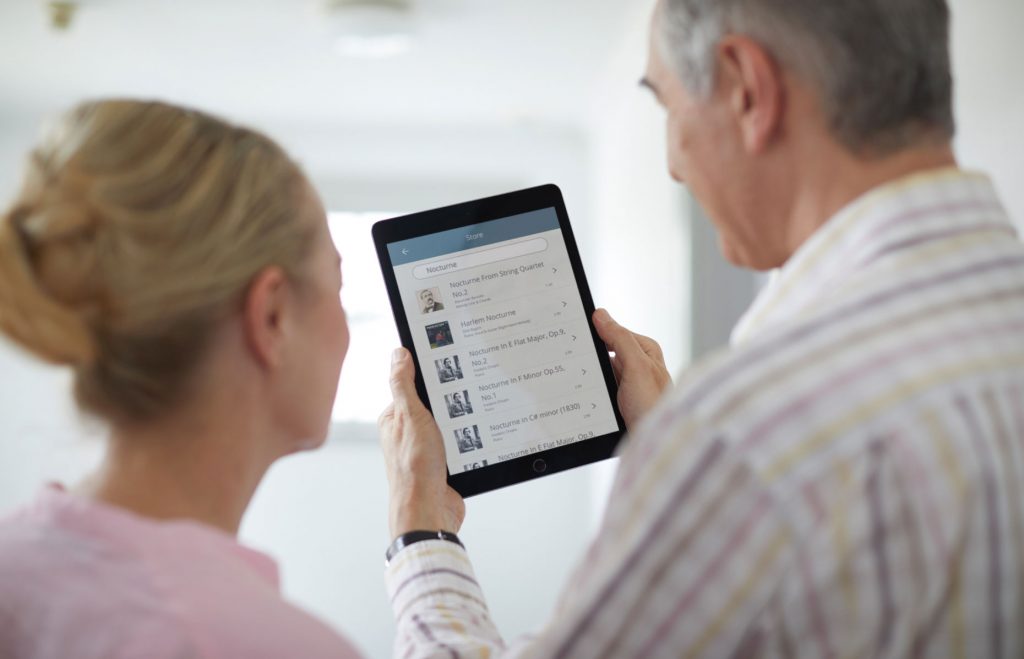
Putting it All Together
Learning piano as an adult isn’t as hard as I thought it would be. I have set the bar at a reasonable height by focusing on enjoyment rather than excellence. The process has also helped me enjoy music even more, and I’ve started writing original songs.
If you are on the fence about learning to play, my advice is to follow your heart. You never know where music will take you.

